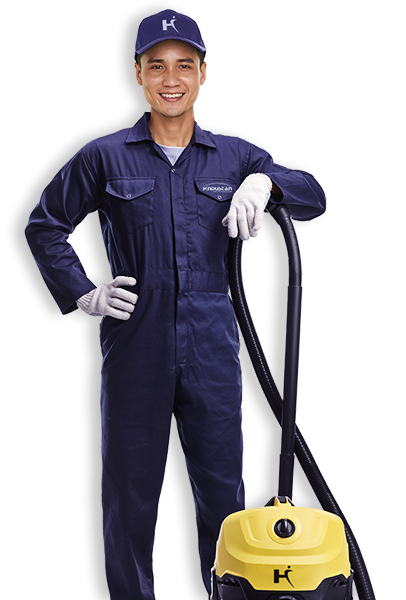In the corporate world, the connection between a clean environment and productivity often goes unnoticed. However, the correlation between deep cleaning practices and a reduction in sick leaves is undeniable. This article shines a light on the profound impact deep cleaning has on employee health, thereby enhancing overall workplace productivity.
1. The Unseen Menace: Germs and Bacteria
Every office, irrespective of its cleanliness on the surface, is a breeding ground for microscopic invaders like germs and bacteria.
- High-Touch Surfaces: Desks, keyboards, door handles, and communal kitchen appliances are often hotspots, acting as reservoirs for harmful pathogens.
- Air Quality: Closed environments with centralized HVAC systems can circulate airborne pathogens, impacting respiratory health over time.
2. The Deep Cleaning Advantage
Unlike regular cleaning, which often addresses only the surface, deep cleaning delves into the nooks and crannies, ensuring a more sanitized environment.
- Comprehensive Disinfection: Deep cleaning involves specialized equipment and solutions that eliminate a broader spectrum of germs and bacteria.
- Improved Indoor Air Quality: With deep cleaning, even the ducts and vents get thorough attention, reducing the circulation of harmful particles and allergens.
3. The Direct Link: Fewer Sick Leaves
A more sanitized environment inevitably leads to a healthier workforce.
- Reduced Transmission: With fewer pathogens lurking around, the chances of employees catching contagious illnesses, like the flu or common cold, diminish significantly.
- Enhanced Immunity: A cleaner environment ensures that employees are not constantly exposed to harmful germs, allowing their immune systems to be more robust.
4. Beyond Physical Health: The Psychological Boost
A clean and fresh workspace isn’t just about physical health; it has psychological benefits too.
- Increased Morale: Employees feel valued and taken care of when they see regular deep cleaning initiatives, leading to increased motivation.
- Reduced Stress: Knowing that the office is a safe and clean environment reduces health-related anxieties, allowing employees to focus better on their tasks.
5. Streamlining Deep Cleaning Practices
For businesses to truly reap the benefits, it’s essential to have a systematic approach.
- Regular Scheduling: Deep cleaning shouldn’t be an annual affair. Depending on the office’s size and number of employees, it should be scheduled quarterly or bi-annually.
- Professional Services: Investing in professional cleaning services ensures that the job is done right, with the right equipment and expertise.
- Employee Awareness: Regularly educating employees about the importance of cleanliness and hygiene can amplify the benefits of deep cleaning.
Conclusion
Deep cleaning is not just an aesthetic choice but a strategic one. By investing in a cleaner, healthier workspace, businesses can witness a significant reduction in sick leaves, leading to enhanced productivity and a happier workforce. It’s an investment that promises tangible returns in the form of a robust, motivated, and efficient team.



